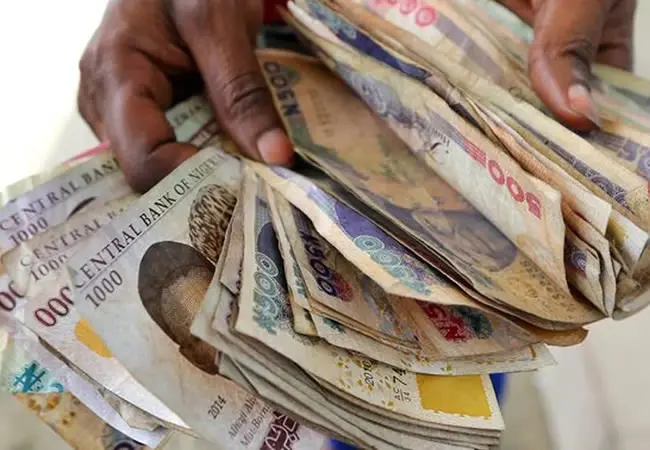The naira experienced a historic decline in the parallel market on Tuesday, driven by persistent dollar shortages and heightened demand for the greenback.
The unit depreciated by 1.5% to ₦1,305 per dollar compared to the previous day, widening the gap over the official rate, which closed at ₦838 on Monday, to 36%, according to FMDQ, which tracks exchange rates for the West African nation.
“Dollar demand has risen steadily since the start of January, from businesses that want to restock goods or their raw materials as well as individuals needing dollars for studies abroad,” Abubakar Mohammed, CEO of Forward Marketing Bureau de Change Ltd., based in Lagos, said in a BusinessDay report. “In all of these, you can’t find the dollar.”
Despite efforts by authorities to improve currency supply, Africa’s most populous nation faces acute foreign-currency shortages. President Bola Tinubu’s foreign-currency reforms last June contributed to the naira depreciating by about 50% against the dollar in the previous year.
Governor of the Central Bank of Nigeria (CBN), Olayemi Cardoso, has pledged to clear a backlog of forward foreign-exchange contracts, estimated between $7 billion and $10 billion, to boost investor confidence and attract inflows.
Last week, the government received $2.25 billion from a syndicated loan arranged by the African Export–Import Bank to stabilize the foreign-exchange market, with an additional $1.05 billion expected later.
Dollar liquidity at the official foreign-exchange market declined by 69% on Monday to $26.37 million, BusinessDay reported quoting an emailed note from investment bank Chapel Hill Denham on Tuesday





